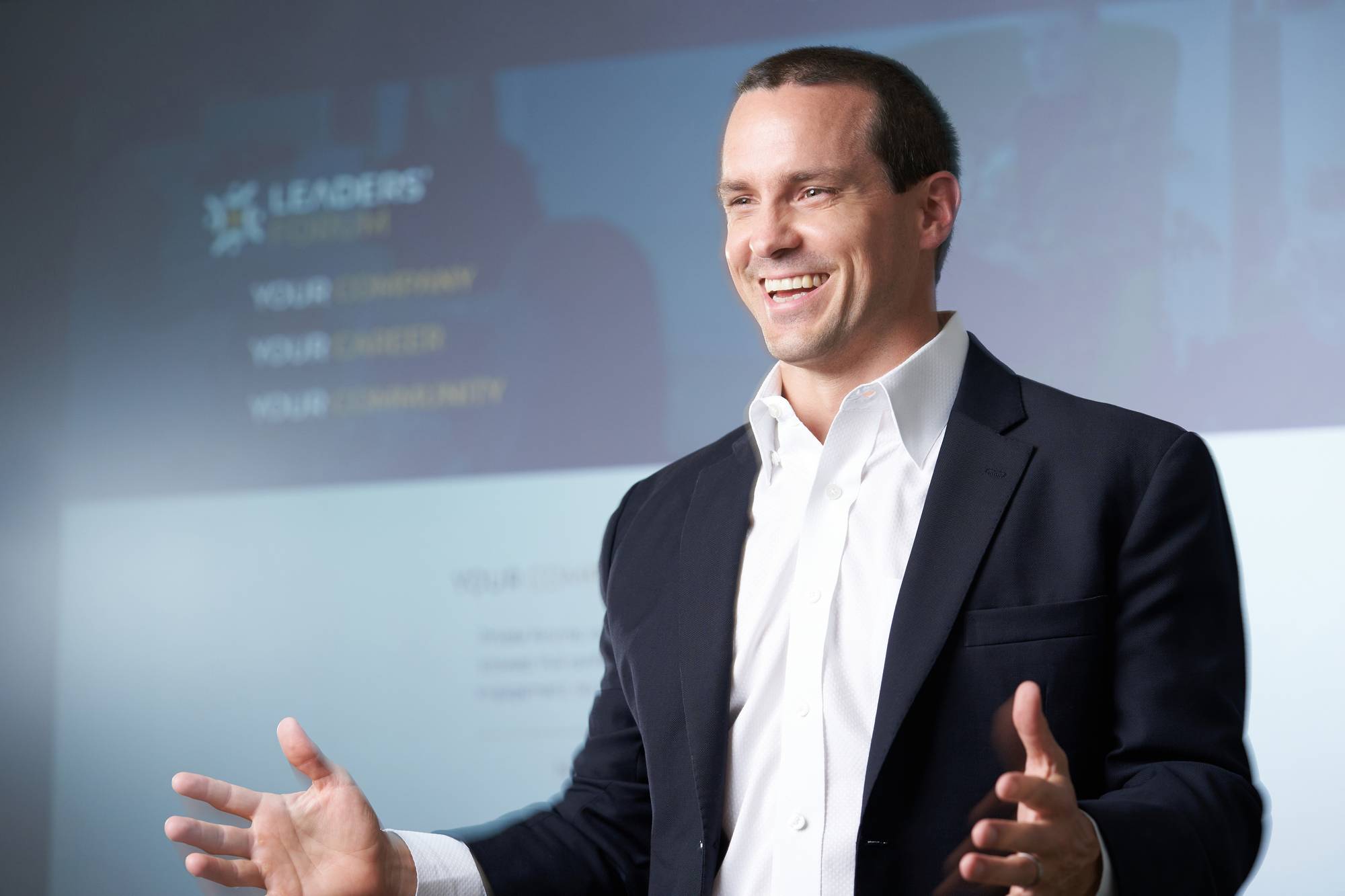Why Your Consults (or Discovery Calls) Go Sideways

To Help You Win…
One of the questions I get most often is, “Why aren’t I closing these opportunities?”
To be honest, it’s ACTUALLY phrased like this:
Lawyer: “These leads just don’t have any money.”
Consultant/Service Provider: “I don’t know what’s going on. Business is slow.”
CEO: “Deals keep pushing, so I’m guessing next quarter will be really good.”
The consultant’s response is the closest to reality because it’s not based on blame or fantasy.
The attorneys think they’re not closing because “the leads aren’t qualified.” The PNC’s say it’s about money, and that’s easier to accept than believing you’re not good at “selling.”
Consultants are scratching their heads, and often know people pay THEM for advice, so they’re sometimes willing to go get advice themselves.
CEOs are torn between clubbing the sales team like baby seals, and believing what the CRO or VP of sales told them: next quarter is looking good.
All of them, though, are losing money. No, it’s not money they HAD. But it should’ve been. Let’s look at some simple mistakes that are costing deals and money.
Read on…

First, some areas we may want to look to find out WHY we’re not closing. I’m not an expert on all of these (but I know some guys). And if you’re in real business (customers paying you for your services) you are likely doing okay on many of these, but still, triage, you know?
- Do you have the right market? Is it large enough? Do they care about the problem you’re solving?
- Do you have a compelling offer? If you’re getting started, this may be the issue. If you’re a startup, this could be you. Two people to follow who can help you with this: S Brian Smith and Doug Lawson, both on LinkedIn.
- Does your message resonate? This is ROUTINELY an issue. People go to market talking about WHAT THEY DO, and not the problems they solve or outcomes they produce. If they do talk about problems, they often talk about them the wrong way.
Attorneys talk about their area of law as if you know it. Commercial real estate brokers tell you, “We’re a full-service real estate firm” as if you know what that means and why you should care. Salespeople talk about their product, not the problem it solves. Sometimes, if they’re average, they talk about outcomes, but you’re still thinking about problems.
As my friend, Ben Kelton, says: you’re not trying to help people hit touchdowns. The message has to land.

Think your market, offer and message are ok? Great. Let’s move on.
—————————————————————————————————————————————————————————
The architecture of most consults or discovery calls is usually a disaster. And that’s being generous.

But no one wants to admit they’re bad at something. So we look to blame the prospects for “not having enough money.” As if them having money would’ve caused them to hire.
No, they say they don’t have money because that’s easier than saying, “I don’t want to work with you enough to make find that money.”
Sigh.
Back to HOW you’re running sales calls or consults. It’s probably broken. Actually, if you’re reading this, you can bet that it’s broken.
Magic 8 ball, am I the problem in my sales?

As we can learn from Charlie Munger, always invert.
Meaning, don’t ask, “What makes the perfect consult or sales call?” You’d stop reading.
Instead, let’s ask “What can I avoid doing that’s ruining my sales calls?”
Here, folks, is a list of 6 deadly sins to repent of in your consults. The goal? Stop hearing, “Not enough money.”
(CEOs reading this, take note: your reps are committing some version of this, but saving their best stories for you. They’ve got whoppers on why they FEEL this deal will close. Next quarter.)
- Giving your personal history. Consults aren’t TED talks, and no one came to learn where you clerked, or why you started the business, or why you joined the firm. If I’m with you, I already feel a lot of that is unnecessary. Can we please get to the real conversation, which is about why I’m here with you?
- Educating as if you’re a paid professor. Because if you dispense advice for a living, people respect it AFTER they’ve paid for it, not before. And you need to know most people don’t want an education: they want an answer. My physician used to spend 20 minutes walking me through how the drugs or vitamins he wanted me on worked. And all I could hear were the adults in Charlie Brown: “wah wah, wah wah wah wah.”
- Not listening. Sigh. I know. This feels like high school for you. But I can’t tell you how often people don’t listen to potential new clients. Yes, they nod their heads, but no, they’re not really there. They’re solving the problem, not understanding it. I once hired a consultant I initially trusted only to see that either he couldn’t listen, or thought I was a moron and chose not to listen. Either way, the relationship ended quickly. If I’m with you, I want to be heard. You may be just like the next guy, but if you listen, I might feel special enough to pay YOU and not your competition.

- Rushing your consults. If you’re going to win a client, it’s worth putting in the time. If you’re paid by the hour, it’s tempting to look at the clock (maybe a reason to go to flat fee billing?). If you are a full-time seller, you want to pack your calendar. Try this: slow down your consults or discovery calls, and watch conversion rates go up. Because you’ll relax a little, prepare more, and listen better.
- Taking it personally. I once got owned in a sales call. Three VPs wanted to big time me in a meeting their president (a friend) had arranged. The VP Sales wouldn’t make eye contact. The VP of operations just grilled me on why I’m better than X. Went like this for 45 minutes. And I was livid, and then embarrassed. Guess what? It wasn’t personal. It WAS a test to see if I was good enough (I wasn’t). I’ve never seen any of those people since, and even if I had, it’s just business. When people push back on fees, it’s not personal. When people tell you what they know about your field, it’s not belittling you or the 20 years you put into learning your space. Just roll with it, homie.

- Assuming. You just read advice telling you to run longer consults. You’re probably asking, “What am I going to do with all that time other than listen?” First, listen to them. Then, second, validate your assumptions. I was talking to a friend who sells to mid-market CEOs. He’s wicket-smaht, like my boy, Will. Knows pricing. But ASSUMES his prospects understand the impact of a 5% price increase. On their business, and on their valuation, and to their personal net worth. It’s a fatal assumption costing him hundreds of thousands of dollars a year. You validate by, well, asking.

Cut these out, and you’re in much better shape than most others you compete with.
You’ll start hearing more from your prospective clients. You’ll uncover something more meaningful than you had in the past. And you’ll naturally ask better questions.
Ah. I almost forgot. Here’s one to grow on. #7:
- Winging it. When I work with attorneys (or CEOs), most don’t have a process they follow. They just sort of show up and “do things” with a potential client:
– Maybe make some small talk
– talk about their firm
– share what they’ve done for others/talk about their capabilities
– ask some questions,
– give some ideas,
– talk about a proposal,
– end the call with, “I look forward to talking again soon.”
A process must deal with both a potential client’s NEED and their COMPELLING REASON to do something. It should deal with issues of their commitment, and if in a business setting, quantifying the stakes. It needs to clarify timelines and decision criteria. Money needs to be talked about frankly, and deftly. And there needs to be a way to ask for the business.
Do that, and you’ll start knowing where opportunities or meetings go off the rails. You’ll know what you’re doing well or poorly. And you’ll be able to forecast, even in one-call close situations.
BUT…it rarely happens that way. So I’m still in business.

______________________________________________________________________________________________________________
What next?
Well, you want to put in a process, actually adhere to it, and then develop the skillset needed to run it.
From there, you adjust for various steps in your process.
Then you get others following it so that you’re not the bottleneck (unless you choose to be).
Then, it’s onto conquering the world.

Seriously – you don’t have to fix everything or nail it. You do have to cut some nonsense out. It begins with those first 6, and then sketching out a basic process you, well, follow.
Do this, and if you’re still wanting more, hit me up. We’ll take you to the next phase of growth.
Here’s to your success.
—————————————————————————————————————————————————————————


